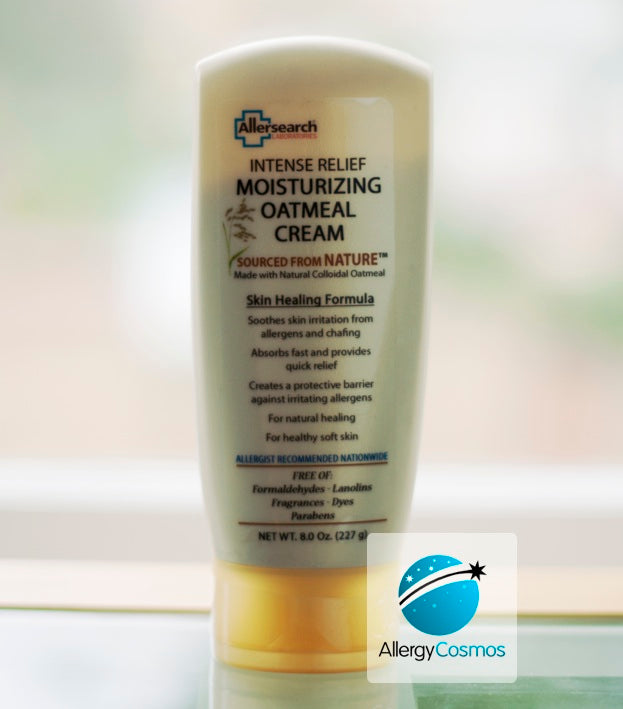If you suffer with eczema, you will probably have asked yourself: what is the best cream for eczema? There are many different eczema creams available, from topical steroids to herbal or home remedies. A cream for eczema has two purposes - to cleanse/moisturise your skin and to deal with inflammation. This means that you will likely need to use two or more different types of cream.
Cleansing and moisturising
For anyone without eczema, cleansing means soap (or some other detergent) and water. But if you have eczema, soap should be avoided as far as possible, and exposure to water minimised. The mainstay of your skin cleansing routine should be a cream for eczema, which is massaged gently into the skin and then rinsed off.
A cream is a mixture of oil (usually a mineral oil, like soft paraffin) and water. Because oil and water don’t mix, an additive known as an emulsifier has to be added to disperse the oil in the form of tiny invisible droplets within the water to make one layer rather than two. Suitable washing creams for eczema that can be used in the bath or shower include Wash E45® and Aqueous cream BP. Like all products containing water, creams can become contaminated by microbial growth, so opt for hygienic containers like pump dispensers to minimise this risk. Also be aware that emulsifiers and other additives can cause either an allergic response or skin irritation. However, there are several creams for eczema besides the two mentioned above, so you’re likely to find at least one that suits your skin.
A moisturiser is the other key product for daily skin care in eczema. As the name suggests, a moisturiser keeps the skin from drying out. All moisturisers work in the same way – by providing a surface layer of oil which slows down the evaporation of water from the skin. You have three main choices of moisturiser – an ointment, a cream or a lotion. Ointments are composed of oil alone while creams, as explained above, also contain water. A lotion is just cream with higher water content. A typical ointment would be coconut oil BP, while Intense Relief Moisturizing Oatmeal Cream from Allersearch is a fantastic moisturising cream for eczema.
Steroid creams tackle inflammation
Some people with eczema (and even their doctors) have sometimes an unwarranted fear of using steroid creams to treat their condition. In fact, steroid creams – if used correctly – are completely safe and play an important role in damping down the inflammatory process underlying eczema 'flare up'.
Not everyone with eczema will need a steroid cream. If you do, then as with cleansers and moisturisers, there are several products to choose from. Steroid creams are classified by their strength and this depends upon the steroid used and its concentration within the product. The steroid is the active ingredient and it is diluted in a base compound which helps application and penetration. It is important to use the minimum strength of steroid cream to keep your eczema under control and to use it for limited periods only. Topical steroid creams for eczema, if misused or used for long periods, are associated with a number of side effects, the most significant of which is thinning of the skin.
There are also non-steroidal creams which damp down inflammation in an eczema flare-up.
Home and herbal remedies for eczema
Tars – substances obtained from the distillation of products like wood and coal – seems to help some people who depart that it has a soothing effect on their skin. Both coal tar and ichthammol, a tar from shale containing fossilised fish, have been used, with some success, to treat eczema.
Calamine is a naturally-occurring mineral known as zinc carbonate and it gets its traditional pink colour from a trace of iron oxide. The lotion is a well-known treatment for sunburn but it has a drying effect which is unhelpful in eczema. However, Eczederm ® cream is a useful moisturiser in mild eczema and does not dry the skin.
Roman camomile has been used as a herbal remedy which is soothing to the skin. It is the active ingredient in Kamillosan ® ointment. Another herbal remedy is Marigold, which is widely used by homoeopaths and herbalists to ease foot problems. Try Calendolon ® ointment, which contains Marigold, if you have mild eczema.
What not to use
There are a number of over-the-counter products which will not do your eczema any good.
For instance, since itching is the main response to eczema, it may seem logical to use treatments that have an anti-itching effect. One of these is available as a cream or ointment called Eurax ®. This is useful in fungal infections that itch, but has little or no effect in eczema and may even irritate the skin.
Similarly, antihistamine creams and lotions such as Caladryl® are good for insect bites and sunburn but may provoke allergy if used for eczema. The same goes for local anaesthetics – they temporarily relieve itching but when used long-term may lead to allergy.




